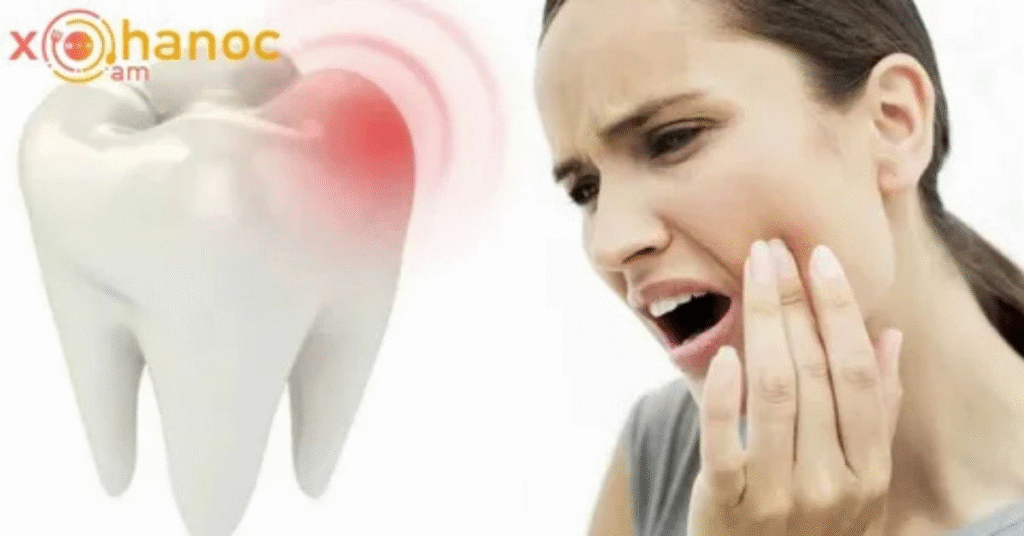Aching jaw anxiety is when stress or worry shows up as physical pain in the jaw. Instead of being caused by a tooth problem, the aching jaw comes from muscle tension, clenching, or grinding linked to anxiety. Many people experience it during busy, overwhelming times without realizing the real cause.
If you’ve ever noticed your jaw tighten after a stressful day, you’re not alone. This silent habit can happen while working, driving, or even sleeping. Over time, it may lead to headaches, stiffness, and constant discomfort. That’s why aching jaw anxiety can feel confusing and exhausting.
The good news is, you can manage this pain once you understand the stress connection. In this article, we’ll explore why it happens, how to spot the signs, and simple steps to relieve the pressure.
The Link Between Stress, Anxiety, and Jaw Pain

Stress and anxiety often show up in the body, not just the mind. One of the most common signs is an aching jaw. Many people experience what’s known as aching jaw anxiety, where constant clenching or grinding leads to stiffness and pain. This happens because tense muscles react to emotional pressure.
Living with aching jaw anxiety can feel draining. The jaw pain may come and go, but stress usually makes it worse. Over time, it can affect sleep, focus, and daily comfort. Knowing the link between stress, anxiety, and jaw pain is the first step toward relief and better health.
Can Anxiety Cause TMJ?
Anxiety can play a big role in TMJ problems. When you feel stressed, your jaw muscles tighten. This can lead to clenching or grinding your teeth, which puts pressure on the jaw joint. Over time, this stress may cause pain, clicking sounds, or trouble opening the mouth.
Not everyone with anxiety will develop TMJ, but the risk is higher. The connection is strong because emotional tension often shows up as physical strain. By managing stress and anxiety, you can lower the chances of TMJ pain and protect your jaw health.
Symptoms of Jaw Tension and Anxiety
Jaw tension often happens when stress builds up in the body. Anxiety makes the muscles tighten, especially around the face and jaw. This can lead to pain, stiffness, and pressure that feels hard to control. Many people do not realize these symptoms are linked to anxiety.
Common symptoms of jaw tension and anxiety include:
- Constant jaw pain or aching
- Clicking or popping when you open your mouth
- Headaches or ear pain
- Tightness in the face or neck
- Teeth grinding, often at night
What Causes Jaw Discomfort?
Jaw discomfort can come from many different reasons. Sometimes it is linked to dental issues like cavities or teeth grinding. Other times, it happens because of stress and tension. Anxiety can also cause muscle tightness, leading to pain and stiffness in the jaw.
It is important to know the possible causes so you can find the right help. Jaw discomfort is not always serious, but when it lasts for a long time, it needs attention.
| Cause | How It Affects the Jaw | Related Symptoms |
| Teeth grinding (bruxism) | Wears down teeth and strains jaw muscles | Morning headaches, sore teeth, tight jaw |
| Stress and anxiety | Makes muscles tense and leads to clenching | Aching jaw, tension in face and neck |
| TMJ disorder (TMD) | Joint becomes inflamed or misaligned | Clicking, popping, difficulty opening mouth |
| Poor posture | Puts pressure on jaw and neck muscles | Neck stiffness, jaw pain after sitting long |
| Dental problems | Infections or cavities radiate pain to the jaw | Toothache, swelling, sensitivity |
| Injury to jaw | Damage to bone or joint from accident | Swelling, pain while chewing, limited motion |
| Arthritis | Causes inflammation in the jaw joint | Persistent pain, stiffness, reduced mobility |
| Sinus infections | Pressure in the sinus cavity affects nearby jaw muscles | Facial pain, nasal congestion, jaw discomfort |
How to Stop Your Anxiety Jaw Pain

Aching jaw anxiety often starts with clenching or grinding your teeth. To stop the pain, the first step is noticing when it happens. Try to relax your jaw during the day and check your posture. Keep your teeth slightly apart and let your tongue rest in a natural position. Breathing exercises and short breaks can also calm stress and reduce tightness in the muscles.
At night, a mouth guard can protect your teeth from damage caused by clenching. Warm compresses, gentle massage, and stretching exercises may ease discomfort. Managing stress through regular exercise, better sleep, or relaxation habits also helps. These small changes can make a big difference in the long run. With the right approach, you can lower the impact of aching jaw anxiety and feel more in control of your health.
Exercises to Relieve Jaw Tension
When stress builds up, it can lead to aching jaw anxiety. Gentle exercises are one of the best ways to release that tightness. Start with a simple stretch by opening your mouth slowly, holding for a few seconds, and then closing it. Repeat this movement several times a day. You can also move your jaw side to side in a relaxed way. These small actions can reduce stiffness and improve flexibility.
Another easy method is to place your tongue on the roof of your mouth and let your jaw muscles soften. Try light resistance exercises by opening your mouth while gently pressing under your chin. Massage around the cheeks and temples may also help. Doing these routines daily can ease discomfort and bring relief from aching jaw anxiety. With practice, your jaw can feel lighter, and tension will slowly fade.
How To Stop Clenching Your Jaw
Clenching your jaw is a common sign of stress. For many people, it is also linked to aching jaw anxiety. This happens when worry and tension build up in the body and affect the jaw muscles. The first step to stop clenching is to notice it. Keep your teeth slightly apart and let your tongue rest gently. Breathing slowly can help the muscles relax and ease the pressure.
You can also try simple habits to reduce aching jaw anxiety:
- Practice deep breathing during stressful moments
- Place the tip of your tongue between your teeth to relax the jaw
- Use a warm compress on your cheeks before sleep
- Avoid chewing gum or hard foods that strain muscles
- Do gentle jaw stretches in the morning and evening
Treating and Preventing Jaw Tension and Anxiety
Jaw tension often happens when stress builds up. Anxiety makes the muscles tight, and this can lead to pain. Treating it means working on both the body and the mind. Simple steps like stretching, using warm compresses, or wearing a mouth guard can help ease discomfort. Relaxation methods such as deep breathing or meditation also make a difference.
Preventing jaw tension is about building healthy habits. Managing stress daily, sleeping well, and avoiding triggers like chewing gum or caffeine are helpful. By combining these habits, you can lower the chances of jaw pain and feel more relaxed.
| Method | How It Helps | When to Use |
| Warm compress | Relaxes tight muscles and reduces stiffness | At night or after a long day |
| Gentle jaw stretches | Improves flexibility and eases pain | Morning and evening |
| Mouth guard | Protects teeth and reduces grinding at night | During sleep |
| Deep breathing exercises | Calms the mind and lowers muscle tension | Any time you feel stressed |
| Massage around jaw/temples | Improves blood flow and relaxes facial muscles | Before bed or during discomfort |
| Regular exercise | Releases stress and lowers anxiety levels | 30 minutes daily |
| Good sleep routine | Gives muscles time to rest and recover | Every night |
| Limiting caffeine/alcohol | Reduces triggers that worsen clenching | Daily habit |
| Mindfulness or meditation | Lowers stress response in body and mind | 10–15 minutes daily |
| Healthy posture | Prevents strain on jaw and neck muscles | While sitting or working |
When to Contact a Doctor for Jaw Pain

Jaw pain is often caused by clenching, grinding, or stress. For many people, it can also be linked to aching jaw anxiety. In some cases, the pain improves with rest, gentle stretches, or home remedies. But if the discomfort lasts for several days or becomes severe, it is important to contact a doctor. Trouble eating, talking, or opening your mouth wide are also clear warning signs.
You should seek medical help if jaw pain is paired with swelling, fever, or headaches. Popping, locking, or sudden sharp pain when moving the jaw needs attention too. A doctor can check if the issue is from TMJ, dental problems, or stress-related habits. Getting help early is the best way to manage aching jaw anxiety and prevent bigger problems in the future.
Permanent Solutions for TMJ Caused by Anxiety
TMJ caused by stress often starts with clenching and grinding. For many people, this is part of aching jaw anxiety, where emotional tension leads to jaw pain and stiffness. Finding a permanent solution means working on both the mind and the body. Stress management, therapy, and daily relaxation can lower anxiety levels. These steps reduce muscle tightness and help prevent further damage to the jaw joint.
Dentists can also guide you toward long-term care. Mouth guards protect the teeth, while physical therapy improves movement and strength. In some cases, orthodontic treatment or minor surgery may be needed for lasting relief. By treating anxiety and jaw pain together, you can overcome aching jaw anxiety and protect your oral health for the future. With the right plan, many people find permanent solutions that bring comfort and peace of mind.
Conclusion
Aching jaw anxiety shows how closely the mind and body are connected. Stress and worry can tighten the muscles and lead to constant jaw pain. Paying attention to the signs and using small daily habits like stretches, relaxation, and deep breathing can ease the discomfort. Taking care of stress is just as important as caring for your jaw.
If aching jaw anxiety does not improve with home care, it’s best to contact a doctor or dentist. Professional support can guide you toward lasting solutions and protect your jaw health. By treating both anxiety and jaw pain together, you can feel calmer, stronger, and free from constant tension
FAQs
1. What is aching jaw anxiety?
Aching jaw anxiety is jaw pain or tension caused by stress, clenching, or teeth grinding linked to anxiety.
2. Can stress really cause jaw pain?
Yes, stress and anxiety tighten muscles, which can lead to clenching and jaw pain.
3. How do I know if my jaw pain is from anxiety or TMJ?
Jaw pain from anxiety often comes and goes with stress, while TMJ usually has clicking, locking, or long-term pain.
4. What are the best ways to relieve aching jaw anxiety?
Gentle stretches, warm compresses, mouth guards, and stress management can help reduce the pain.
5. When should I see a doctor for jaw pain?
See a doctor if the pain is severe, lasts for many days, or comes with swelling, fever, or trouble opening your mouth.

